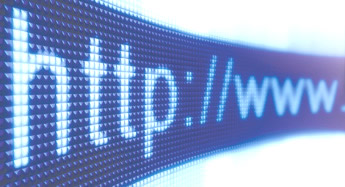What's in a Link?
English Law Issues with Linking Online
Linking between webpages is so common that many of those who place a link to a third party webpage probably give little thought to the legal risks of doing so.
Linking between webpages is so common that many of those who place a link to a third party webpage probably give little thought to the legal risks of doing so. This is perhaps due to a common belief that linking is risk-free because the link is merely providing access to material stored elsewhere.
However, might a person be legally liable for linking to:
- copyright material?
- defamatory material?
- other unlawful material (e.g. material that breaches privacy or confidentiality, is in contempt of court, incites racial or religious hatred, is obscene, or encourages acts of terrorism)?
- a webpage that itself links to unlawful material?
 This article only considers liability arising from the link itself and not, for example, liability for content surrounding or in the link (e.g. copied headlines), or caching. The various parties potentially responsible for linking (e.g. the person who placed the link and the owner of the website featuring the link, if different) are referred to below as "the linker".
This article only considers liability arising from the link itself and not, for example, liability for content surrounding or in the link (e.g. copied headlines), or caching. The various parties potentially responsible for linking (e.g. the person who placed the link and the owner of the website featuring the link, if different) are referred to below as "the linker".
This article deals first with copyright and then with issues relating to defamation and other types of unlawful material.
When could linking amount to copyright infringement?
We consider that, in certain circumstances, a link could amount to copyright infringement. Placing a link, of itself, is unlikely to amount to copying as the linked website has not been reproduced. However, linking could still potentially give rise to three infringing acts (which are analysed below):
- making the copyright work available to the public by electronic transmission;
- authorising internet users to infringe; and/or
- joint tortfeasorship with the acts of internet users.
Making the copyright work available to the public
Under UK copyright law, a copyright owner has the exclusive right to communicate their copyright work to the public, which includes making their work available to the public by electronic transmission so that members of the public may access it from a place and at a time individually chosen by them1. This "making available" right includes making a work available over the internet.
Usually the person who places a copyright work on the internet will have made it available (whether they do so with or without the copyright owner’s consent). Could it be argued that a person who links to that work is also making it available?
 Case law2 indicates that a link to a work that is already readily available to the general public on the internet is unlikely to be making that work available. We consider that a link is only likely to be considered to be "making available" if it somehow makes the linked copyright work available to a "new public" that could not otherwise access it or could not access it so easily. This could apply if, for example, the link circumvents a paywall, thus allowing nonsubscribers to access subscriber-only content.
Case law2 indicates that a link to a work that is already readily available to the general public on the internet is unlikely to be making that work available. We consider that a link is only likely to be considered to be "making available" if it somehow makes the linked copyright work available to a "new public" that could not otherwise access it or could not access it so easily. This could apply if, for example, the link circumvents a paywall, thus allowing nonsubscribers to access subscriber-only content.
It could also apply (as was the case in Twentieth Century Fox v Newzbin Limited3) if the link allows internet users to access a consolidated version of a single work (e.g. a film) that would otherwise be split into many different files (each containing e.g. a part of the film) that would be very time-consuming for an internet user to locate, access and consolidate.
Authorising internet users to infringe
A further potential argument is that a linker is authorising internet users to do an act with the linked work to which the copyright owner has not expressly or impliedly consented (e.g. copying it, on the basis that the internet user technically copies the linked content onto their computers when clicking on the link). The House of Lords has held that "an authorisation means a grant or purported grant, which may be express or implied, of the right to do the act complained of" and that authorisation is more than mere facilitation4.
 Generally speaking, authorisation is unlikely to apply where the linked copyright work is freely available on the internet with the copyright owner’s consent, provided the linker does not purport to grant internet users the right to do more with the work than the copyright owner is permitting (e.g. authorising internet users to commercially exploit a work where this is prohibited in the linked website’s terms of use5).
Generally speaking, authorisation is unlikely to apply where the linked copyright work is freely available on the internet with the copyright owner’s consent, provided the linker does not purport to grant internet users the right to do more with the work than the copyright owner is permitting (e.g. authorising internet users to commercially exploit a work where this is prohibited in the linked website’s terms of use5).
Where authorisation may be more significant is with links to infringing content, such as pirate copies of films or music. The courts would probably look at all the circumstances to see whether the linker authorised internet users to, for example, copy. The linker’s knowledge and intention and the overall context of the link are likely to be important. For example, an encouragement alongside the link to internet users to "Click below to see the latest cinema releases of your choice – for free!" may be enough to create the impression of granting the necessary rights. On the other hand, a disclaimer making it clear that the linker does not have the authority to grant any rights in the linked work and warning about the risk of copyright infringement may bring the linker onto the right side of the line, provided the disclaimer is not merely a superficial attempt to conceal the true purpose of providing the link (see the Newzbin case referred to above).
If you have any questions on this article please contact us.
1Section 20 of the Copyright, Designs and Patents Act 1988
2E.g. Sociedad General de Autores y Editores de España (SGAE) v Rafael Hoteles SL [2006] ECR I-11519 (case C-306/05); Twentieth Century Fox v Newzbin Limited [2010] EWHC 608 (Ch)
3[2010] EWHC 608 (Ch)
4CBS Songs Ltd v Amstrad Consumer Electronics [1988] 2 All ER 484
5Where the linked website’s terms of use contain a prohibition on linking, linking to the website could, depending on the circumstances, potentially give rise to contractual issues.


Timothy Pinto
Linking is fundamental to the Internet. But linking can be unlawful - it depends on the linker's knowledge and context of the link.
"Placing a link, of itself, is unlikely to amount to copying as the linked website has not been reproduced."

